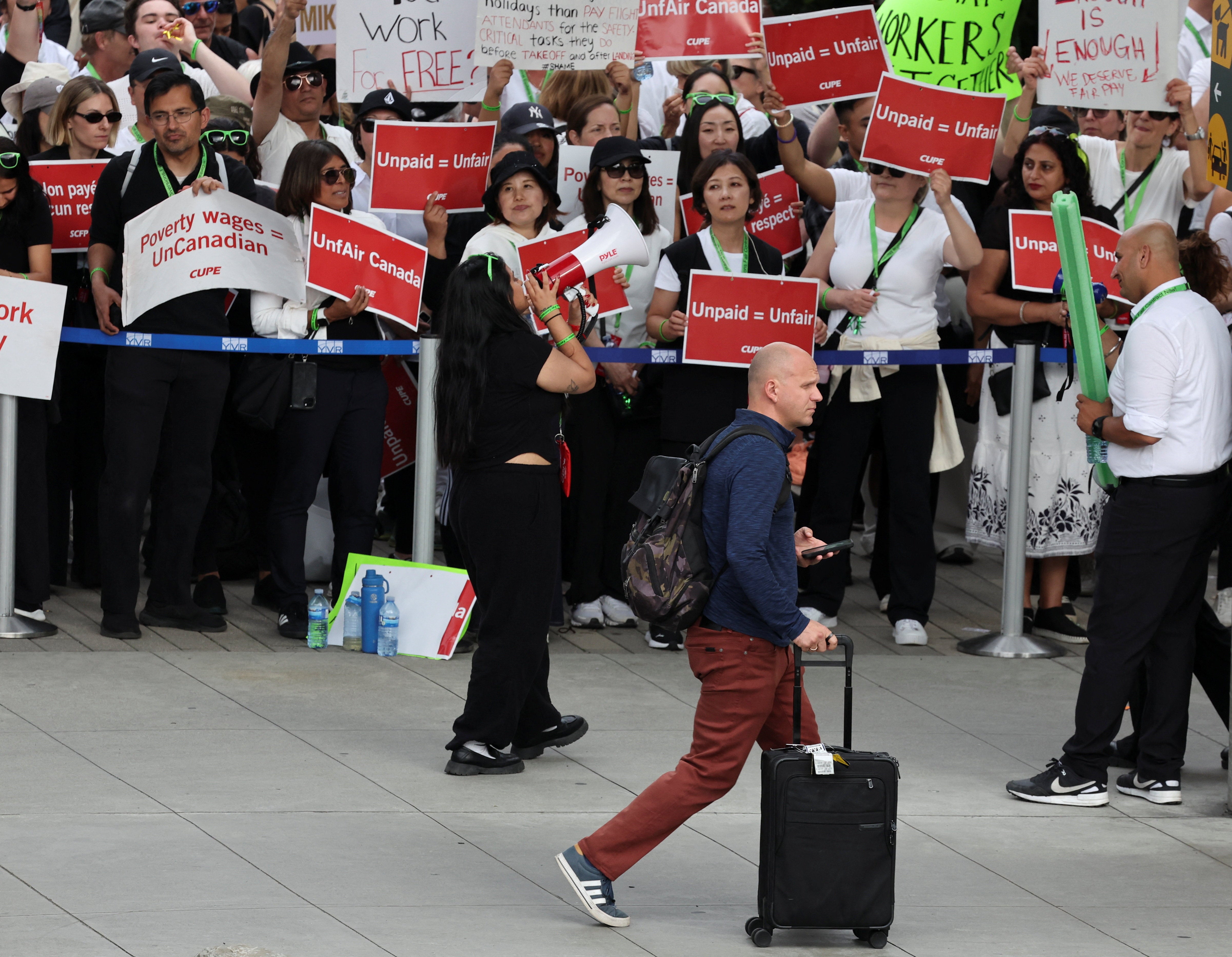The emails from Air Canada came without warning: flights cancelled at the last minute, no way to get home, and no one at Air Canada answering the phones despite repeated calls. Days went by without a solution.
The disruption stems from a strike that began on August 16 when some 10,000 Air Canada flight attendants walked off the job after months of unsuccessful talks over compensation and working conditions. In the wake of it, more than 100,000 passengers were left stranded.
A tentative agreement to end the contract dispute between Air Canada and its flight attendants has since been reached, and flights are gradually resuming. But many travellers are still stuck abroad or facing lengthy layovers and long lines in crowded airports as they rebook alternative routes.
For those caught up in it, the experience has been draining and overwhelming. Air Canada has said it could take up to a week for full operations to resume, leaving Canadians stranded abroad, still waiting for a path home.

I am one of those stranded passengers. I also teach management and study how people respond in high-stress, uncertain situations and how they can handle them more effectively.
Research has long shown that uncertainty and scarcity push ordinary people toward frustration and conflict, often in ways that make matters worse. In this piece, I will share a few research-backed strategies to help make an unbearable situation a little easier to navigate.
Why this moment feels so stressful
The Air Canada strike combines three powerful stressors: uncertainty, lack of control and crowding. Travellers do not know when or how they will get home, they cannot influence the pace of solutions and they are surrounded by others competing for the same resources.
Each of these factors is already stressful on its own, and combined, they can overwhelm even the most patient individuals. In these volatile conditions, frustration builds and there is a strong urge to lash out.
Anger might seem like a way to regain control, or at least to feel noticed in the chaos. While it’s an understandable reaction, it rarely improves such situations.
Reacting out of anger often leads us to make emotional rather than rational decisions, such as yelling to feel heard. This behaviour…
Click Here to Read the Full Original Article at The Independent Travel…
